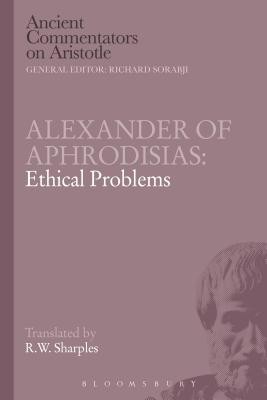
- We will send in 10–14 business days.
- Author: R W Sharples
- Publisher: Bloomsbury Publishing PLC
- Year: 2014
- Pages: 151
- ISBN-10: 1780933681
- ISBN-13: 9781780933689
- Format: 15.6 x 23.4 x 0.8 cm, softcover
- Language: English
- SAVE -10% with code: EXTRA
Reviews
Description
Aristotle's Nicomachean Ethics has been a central text in moral philosophy since the fourth century BC. The Ethical Problems attributed to Alexander of Aphrodisias - the leading ancient commentator on Aristotle - not only shows us how Aristotle's work was discussed in Alexander's own day (c. 200 AD) but offers interpretations and insights that are valuable in their own right. Topics discussed include pleasure and distress, moral virtue, the criteria for judging actions voluntary, the development of moral understanding, and the place in ethics of utility, political community and a sense of shame.
EXTRA 10 % discount with code: EXTRA
The promotion ends in 20d.00:13:36
The discount code is valid when purchasing from 10 €. Discounts do not stack.
- Author: R W Sharples
- Publisher: Bloomsbury Publishing PLC
- Year: 2014
- Pages: 151
- ISBN-10: 1780933681
- ISBN-13: 9781780933689
- Format: 15.6 x 23.4 x 0.8 cm, softcover
- Language: English English
Aristotle's Nicomachean Ethics has been a central text in moral philosophy since the fourth century BC. The Ethical Problems attributed to Alexander of Aphrodisias - the leading ancient commentator on Aristotle - not only shows us how Aristotle's work was discussed in Alexander's own day (c. 200 AD) but offers interpretations and insights that are valuable in their own right. Topics discussed include pleasure and distress, moral virtue, the criteria for judging actions voluntary, the development of moral understanding, and the place in ethics of utility, political community and a sense of shame.


Reviews